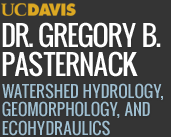Indigenous Knowledge
Does humanity have the necessary wisdom to live more sustainably and with greater sensitivity towards our fellow creatures?
Background:
Earth is undergoing systemic global ecological collapse brought on by human civilization. In turn, ecological collapse is causing significant socio-economic harm to human civilization, including growing costs to combat symptoms of the larger collapse. Modern science and technology has enlightened civilization, but it has also enabled runaway human population growth and natural resource consumption.
Indigenous knowledge refers to long-standing information, wisdom, traditions and practices of peoples or local communities present for long times predating historic intercontinental colonization. The UN Declaration on Indigenous Peoples recognizes “that respect for indigenous knowledge, cultures and traditional practices contributes to sustainable and equitable development and proper management of the environment.”
The question arises, Does humanity have the necessary wisdom to live more sustainably and with greater sensitivity towards our fellow creatures?
Different stakeholders have different perspectives on this issue.
Broad Assignment:
You will watch the movies The Fast Runner and Day After Tomorrow to view dramatized, fictional perspectives on Inuit cultural heritage and global climate change. After watching the movies but before coming to your discussion section, everybody will read an article describing the changes the Inuit are experiencing as a result of global climate change and the IPCC’s most recent synthesis report making the case that climate is warming and the warming is due to human activities. Further, after watching the movie but before coming to your discussion section, each person will be assigned to a stakeholder viewpoint and you will read a document presenting the viewpoint you are assigned to articulate. In class you will participate in discussion of the scenario.
Everybody reads:
Stakeholder ID’s For This Assignment:
1. Smithsonian Institute
2. Inuit climate change management wisdom
3. iBesao water management wisdom
4. Teachers needing to incorporate IK into their curricula
Specific Readings by Stakeholder ID:
You are welcome to search the internet to find more resources in support of discussing the viewpoint you are assigned to represent.
2. Fenge, T. 2001. “The Inuit and Climate Change”. Isuma 2:4:1-10.
3. Dictaan Bang-Oa, E. P. 2006. “Traditional Water Management among the Kankanaeys of Besao, Mountain Province, Philippines”. In: Boelens, R., Chiba, M., Nakashima, D. (Eds.) Water and indigenous peoples. Knowledges of Nature 2, UNESCO: Paris.
Activity in Discussion Section:
- 7 minutes settling class down, deal with class issues, and TA intro to scenario.
- 7 minutes discussion with same all people with same viewpoint discussing how to make your main points
- 7 minutes with an opposing viewpoint, one-on-one
- 7 minutes with an opposing viewpoint, one-on-one.
- 7 minutes with an opposing viewpoint, one-on-one.
- 7 minutes with an opposing viewpoint, one-one-one
- 7 minutes whole-class discussion wrap up.


